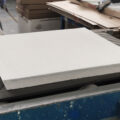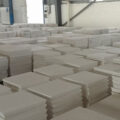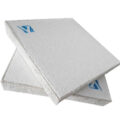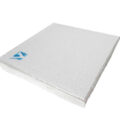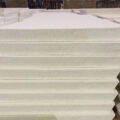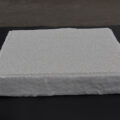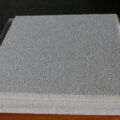Ceramic Filter Indonesia Aluminum is mainly used to filter aluminum and alloys in foundries and cast houses.
Foundry Filters have excellent resistance to molten aluminum erosion and corrosion, can effectively remove inclusions, reduce trapped gas and provide laminar flow, so that the filtered metal is cleaner. Cleaner metals will produce higher quality castings, less scrap and fewer inclusion defects, all of which help increase profits.
Ceramic Filter Indonesia Aluminum is produced on the basis of a solid network structure carrier and composite organic foam pores.
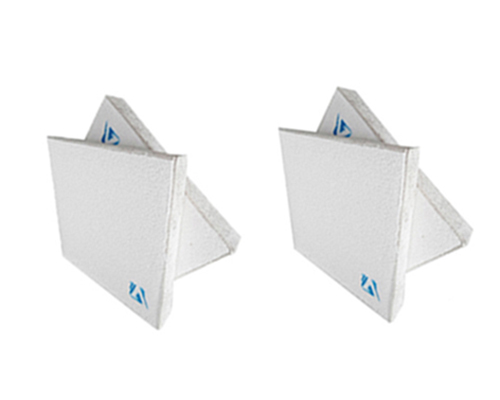
The production process is as follows. The carrier is put into the thixotropic alumina slurry, and the square correction automatic extrusion process is adopted to make the slurry uniformly deposit in the carrier foam skeleton. After drying and solidification, the carrier is baked into a finished product.
Alumina ceramic foam filter is installed in the filter bowl to filter the impurities in the molten aluminum alloy, which can meet the production requirements of aluminum alloy precision casting with high added value and high technical performance, such as computer hard disks, PS substrates for printing, canned materials, turbojet engine fan blades, etc.
News from Jakarta, January 22. Oggy Achmad Kosasih, managing president of the Indonesian state-owned refinery-Inalum (PT Indonesia Asahan Aluminium), said in an interview on Wednesday that the company plans to increase its aluminum smelting capacity from the current 250,000 tons/year to 1 million tons/year.
He said that the company plans to build a new smelter with an annual production capacity of 500,000 tons in North Kalimantan of the country. The smelter project is currently in the feasibility study stage and is expected to cost up to 2 billion US dollars. It will take “several years”. Complete the construction.
He also said that the company also plans to double the capacity of its Kuala Tanjung smelter in North Sumatra to 500,000 tons per year.
He said that the company’s access to electricity will add another 200 megawatts.
The company plans to produce about 235,000 tons of aluminum this year and further increase to 300,000 tons by 2020.

